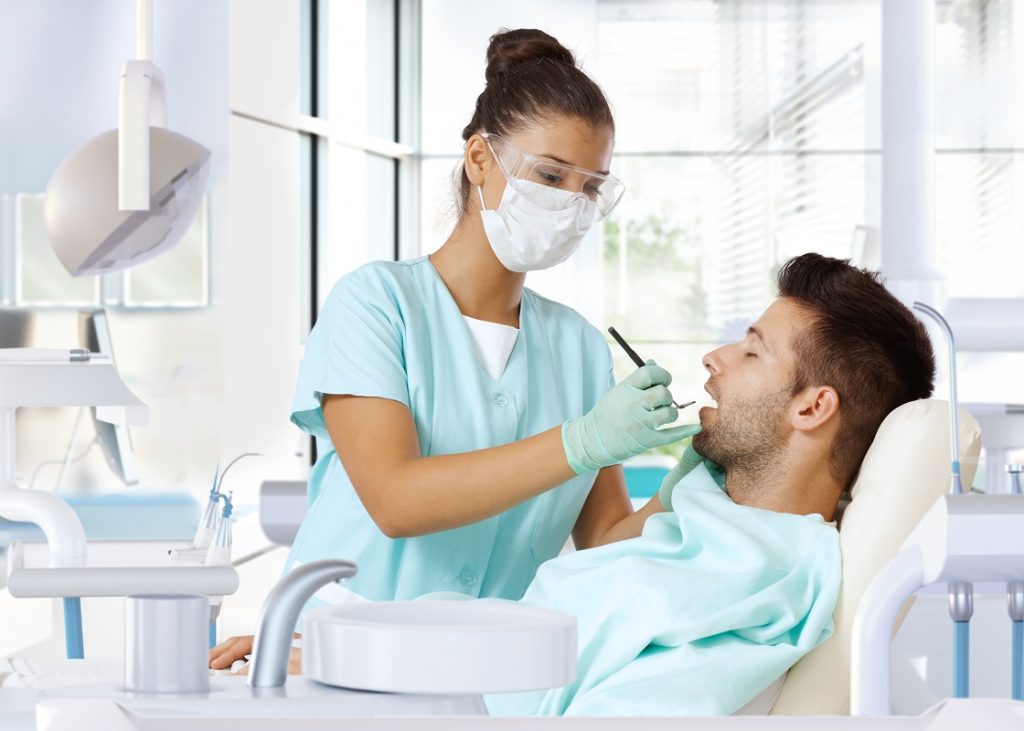Disclaimer: This website provides health information for educational purposes only and is not a substitute for professional medical advice, diagnosis, or treatment. Always seek the guidance of a qualified healthcare provider with any questions you may have.
- Regular check-ups are critical for detecting health problems early when they are easier to manage and treat.
- Early detection of chronic diseases like diabetes and high blood pressure can prevent serious health conditions.
- Check-ups often involve screenings and tests that can detect illnesses such as cancer and heart disease.
- Catching health problems early can save time and money by reducing hospital visits and treatment costs.
- Regular check-ups provide peace of mind and empower individuals to take control of their health and well-being.
Regular check-ups play a crucial role in promoting overall health and well-being. They provide an opportunity to identify and address health concerns before they worsen or become chronic. By detecting potential health problems early, individuals can take steps to manage or even prevent severe health conditions.
Additionally, routine check-ups can help individuals establish a strong relationship with their healthcare provider, leading to better communication and more effective management of their health.
Routine check-ups are critical in ensuring optimal health, whether a regular physical with a primary care physician or seeing a specialist for a specific issue. Preventative care is the key to staying healthy, and regular check-ups are a crucial component of that care.
This will discuss the numerous benefits of regular check-ups and why catching health problems early is so important.
Why Regular Check-Ups Are Essential
There is a multitude of reasons why regular check-ups are essential. First and foremost, they allow your doctor to catch any potential health problems before they become more serious. Many chronic diseases, like diabetes and high blood pressure, often have no symptoms in their early stages. Regular check-ups can help detect these diseases early on when they are easier to manage and treat.
In addition, check-ups often involve screenings and tests that can help detect illnesses like cancer and heart disease. For example, breast and colon cancer screenings can detect cancer in its early stages when it’s treatable.
Catching Problems Early Saves Lives
Early detection is critical when it comes to saving lives. Many conditions, including cancer, heart disease, and stroke, are among the leading causes of death in the United States. Catching these conditions early can make all the difference in treatment success rates.
For example, the survival rate for breast cancer detected in its earliest stage is close to 100%, while the survival rate for breast cancer seen at a later stage drops to around 25%. The same goes for heart disease and stroke, where early detection can significantly affect treatment options and success rates.
Regular Check-Ups Save Time and Money
Regular check-ups can save you time and money in the long run. Catching health problems early often means less time spent in the doctor’s office, fewer hospital visits, and less money spent on treatment. In addition, many insurance plans cover preventative care, making it a cost-effective way to stay healthy.
Peace of Mind
Regular check-ups can also provide peace of mind. Knowing that you are taking steps to protect your health and catching potential health problems early can help reduce anxiety and stress. Taking control of your health and being proactive about your well-being is empowering.
Essential Check-Ups to Have Regularly
Eye Exam
Eye exams are essential for maintaining good vision and detecting eye diseases such as cataracts, glaucoma, and age-related macular degeneration. Adults without vision problems should have an eye exam every two years, but those with vision problems or a family history of eye disease should have a yearly exam.
Blood Pressure Screening
High blood pressure is often called the “silent killer” because it has no symptoms but can cause serious health problems such as heart attacks, strokes, and kidney disease. Blood pressure screenings should be done at least once a year, starting at age 18, and more frequently if you have high blood pressure or other risk factors.
Dental Exam
Regular dental exams are crucial for maintaining good oral health and detecting dental problems such as cavities, gum disease, and oral cancer early. Adults should have a dental exam every six months or more frequently if recommended by their dentist.
In addition to regular dental exams, visiting a reliable dental office is crucial. Look for a dental office with a good reputation, positive patient reviews, and up-to-date technology and equipment. This will give you peace of mind during your visits and contribute to your overall dental health in the long run.
Cholesterol Screening
High cholesterol levels can increase the risk of heart disease and stroke. Guidelines recommend that adults over 20 have their cholesterol checked at least once every five years. Still, those with high cholesterol, a family history of heart disease, or other risk factors may need more frequent screenings.
Tips for Finding a Primary Care Physician or Specialist to Perform Regular Check-ups
To find a provider that suits your specific health needs, consider the following:
- Look for someone who specializes in your particular conditions or health issues, if any.
- Determine if the physician or specialist accepts your insurance plan.
- Check if the office location is convenient for you.
- Read reviews or ask for recommendations from family members or friends.
Regular check-ups are an essential component of staying healthy. They allow your doctor to catch potential health problems before they become more serious, which can save your life. In addition, regular check-ups can save you time and money, provide peace of mind, and help you build a strong relationship with your doctor.
By monitoring your health through screenings and check-ups, you’ll likely catch any potential problems before they become severe. So, find a healthcare provider that works for you and prioritize regular check-ups in your efforts to maintain good health. Your future self will thank you!
